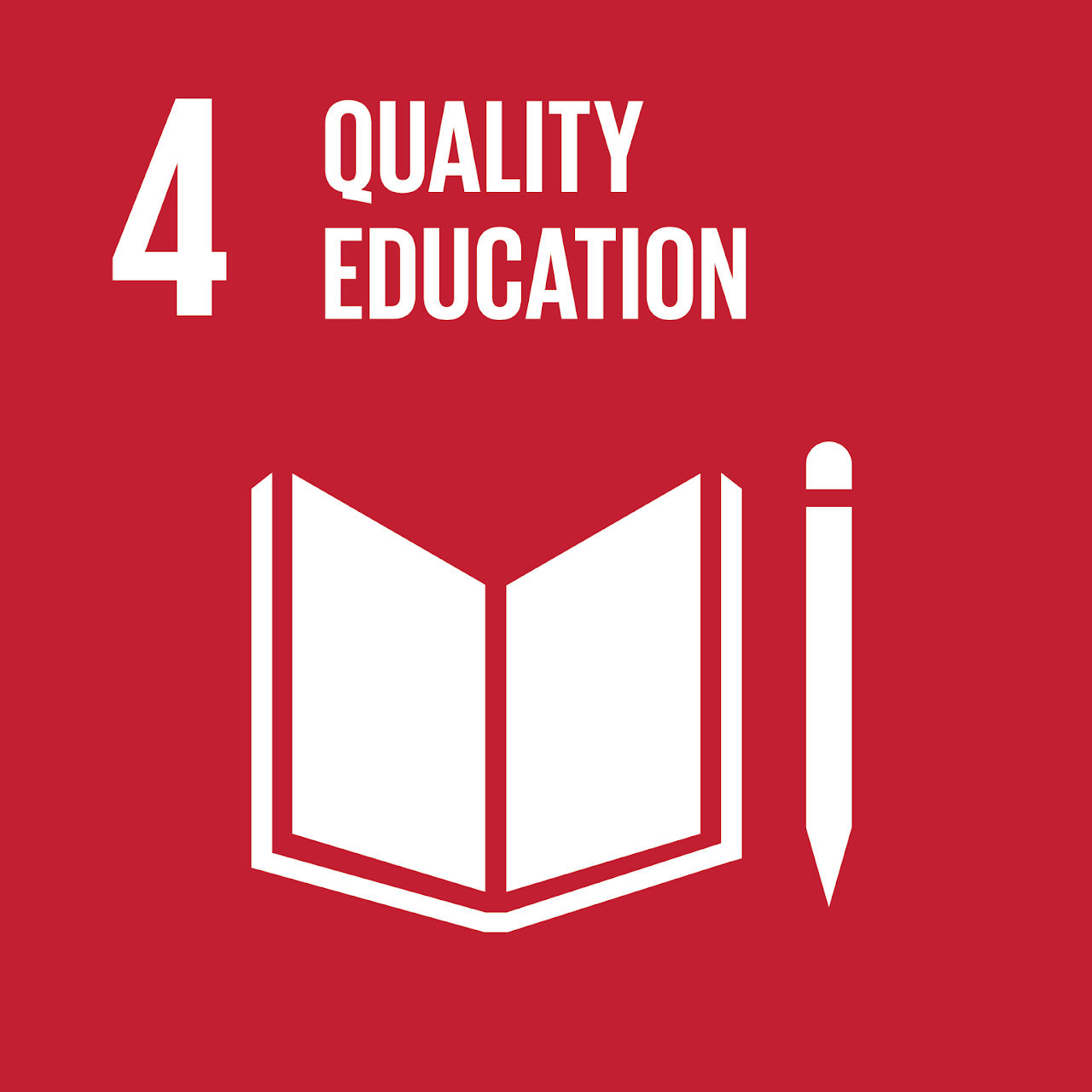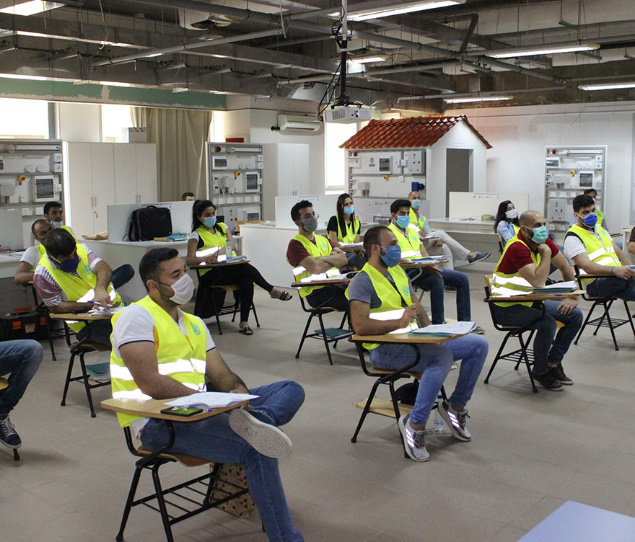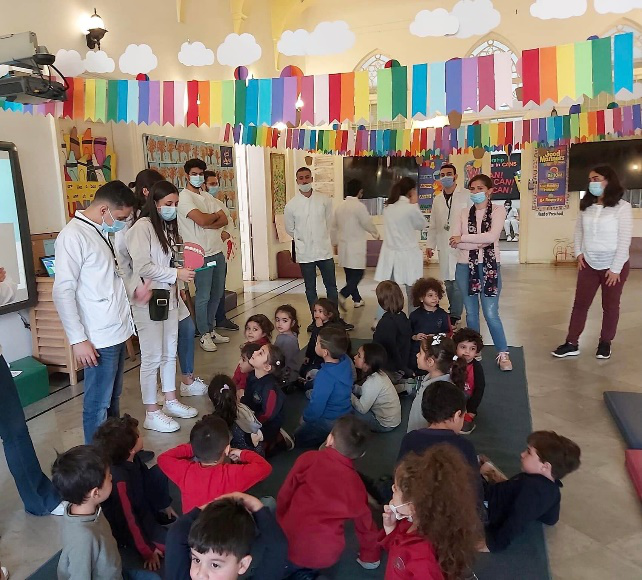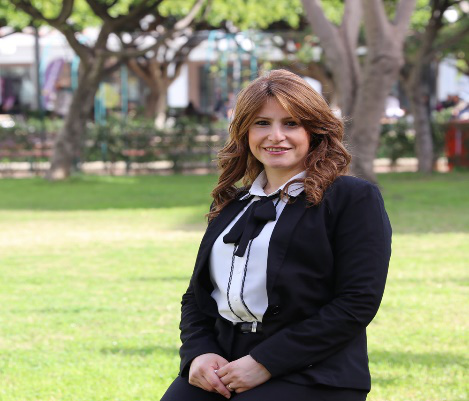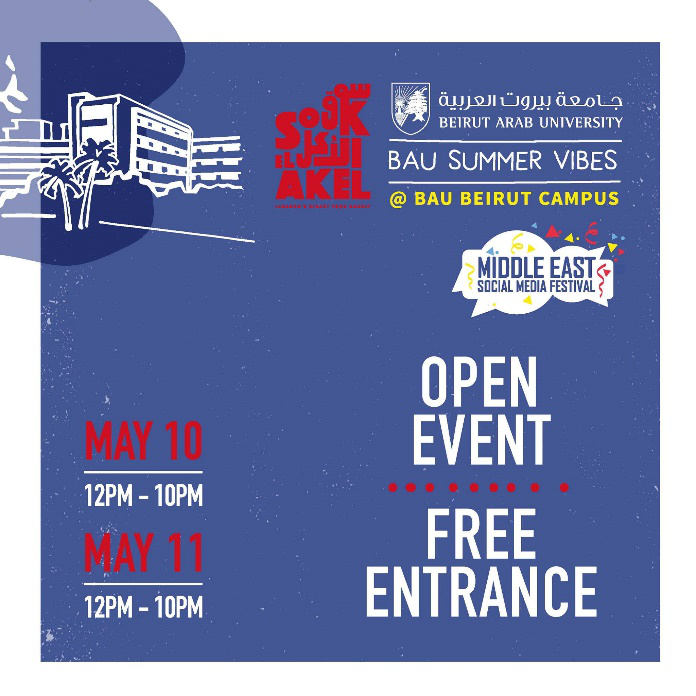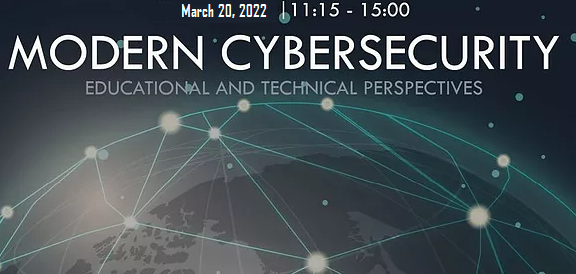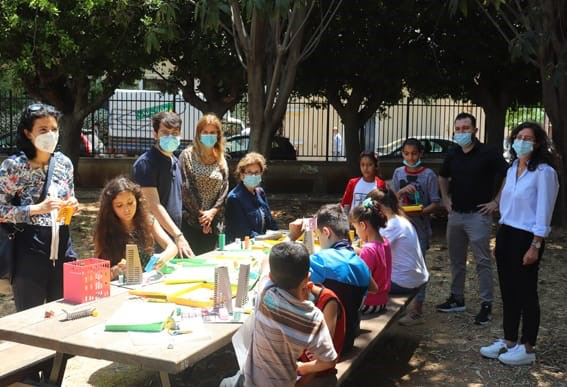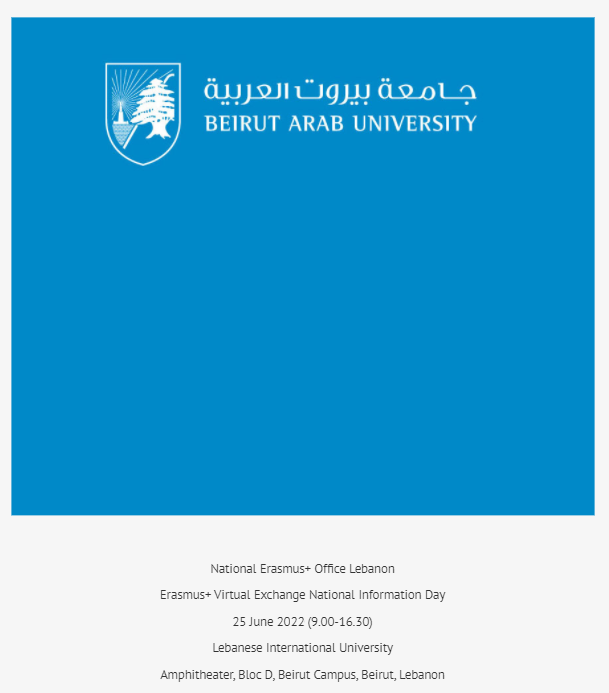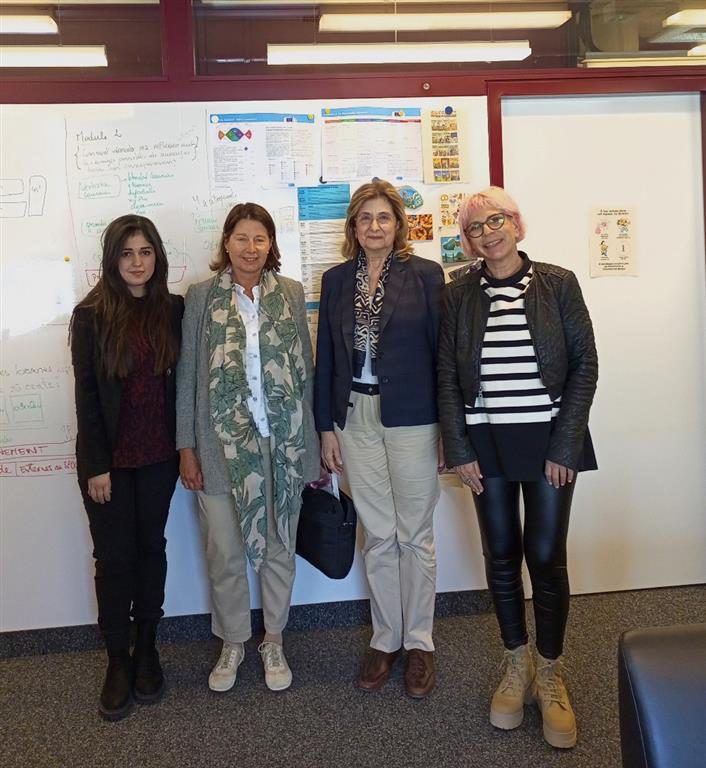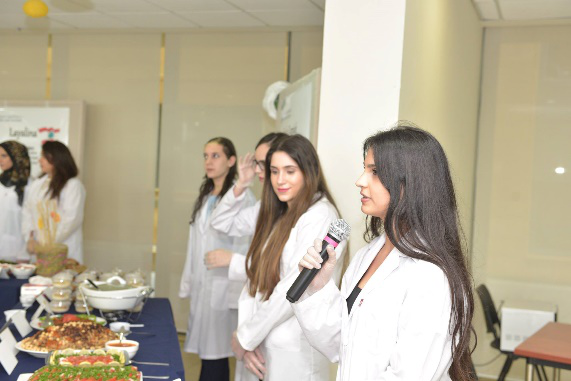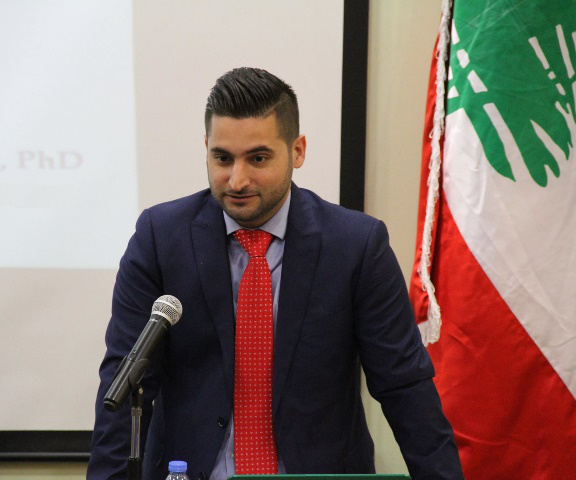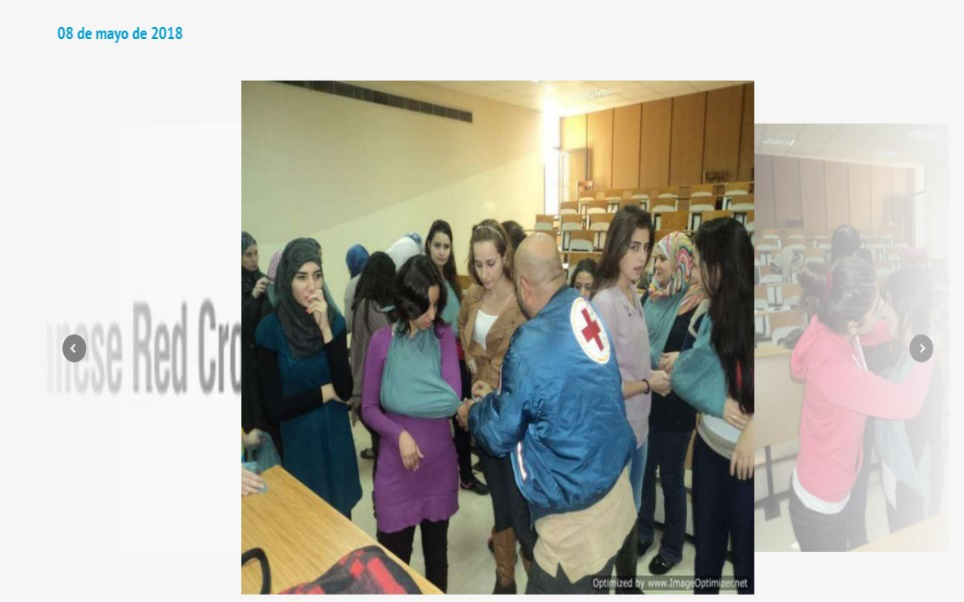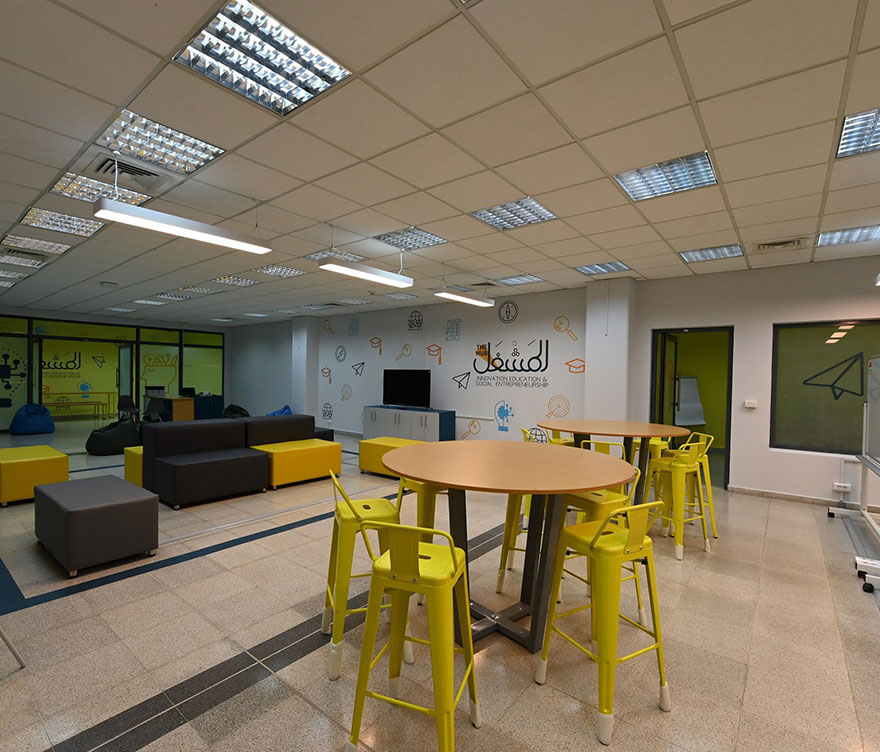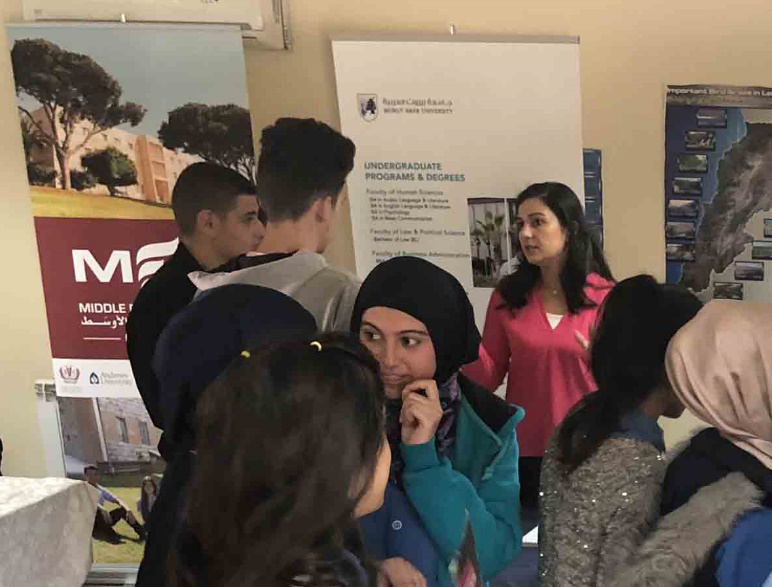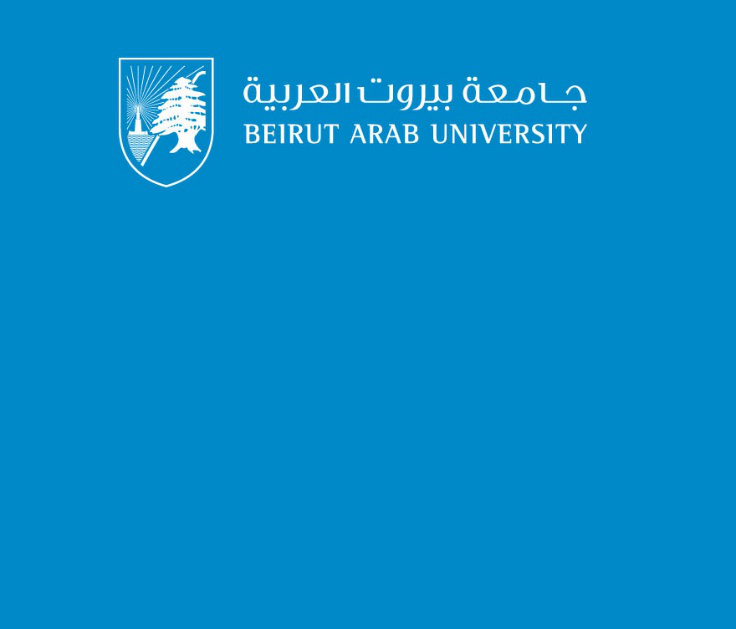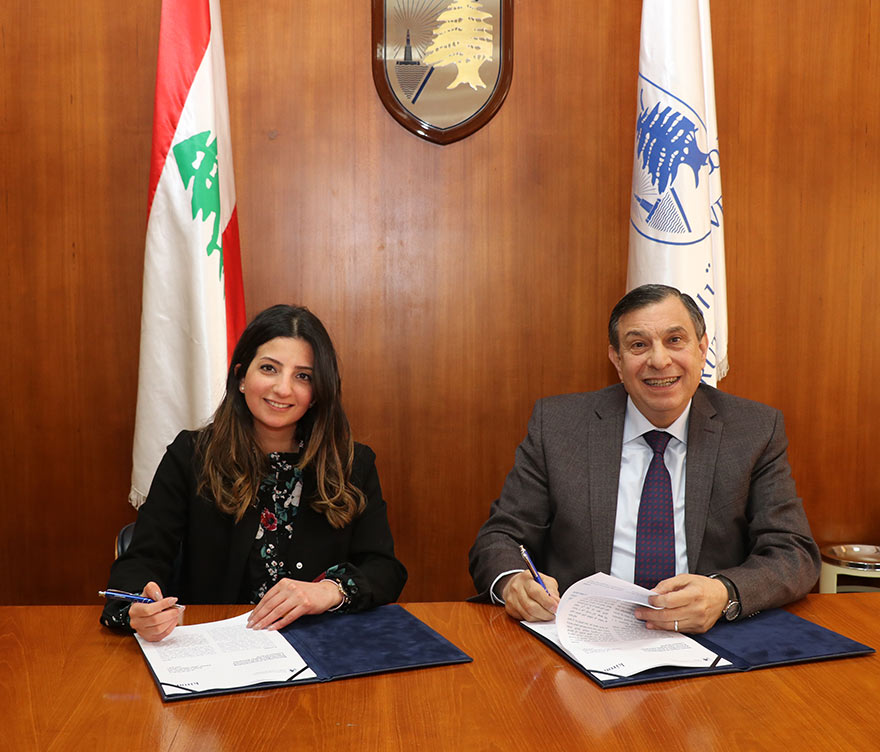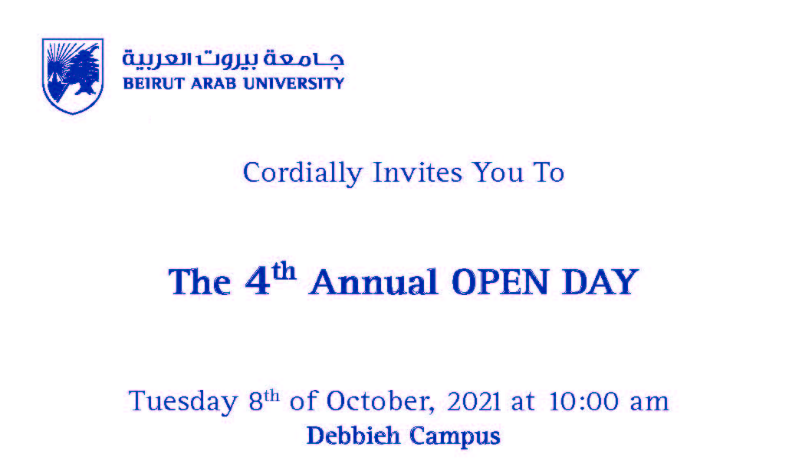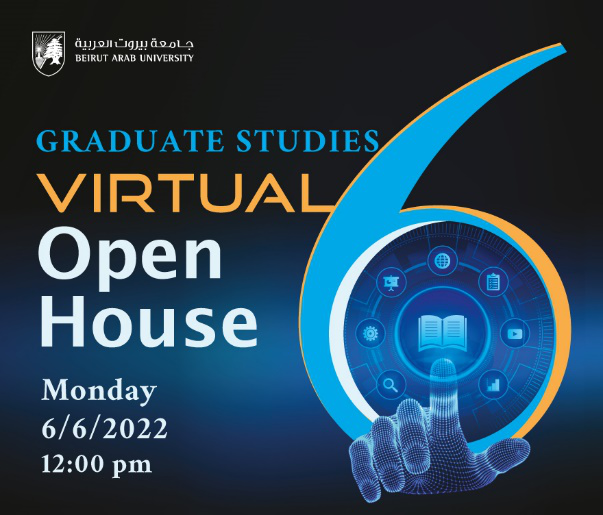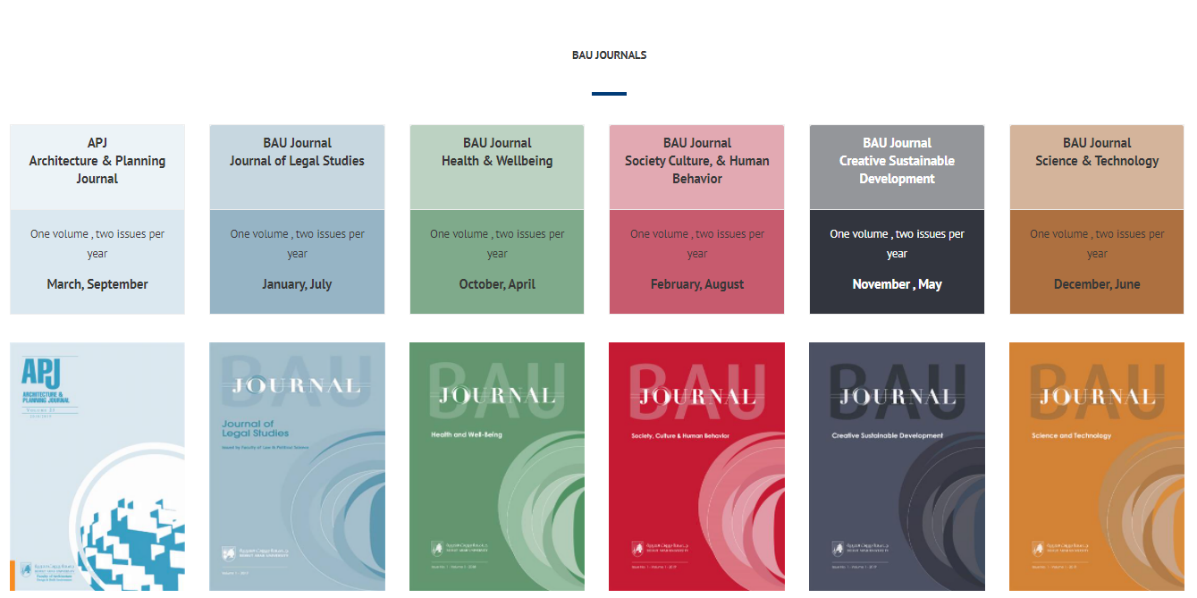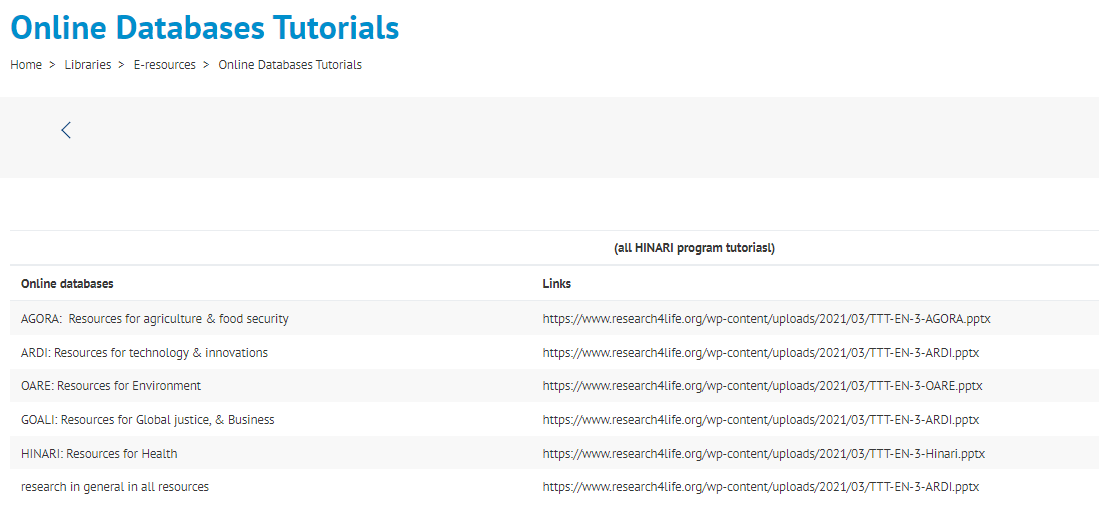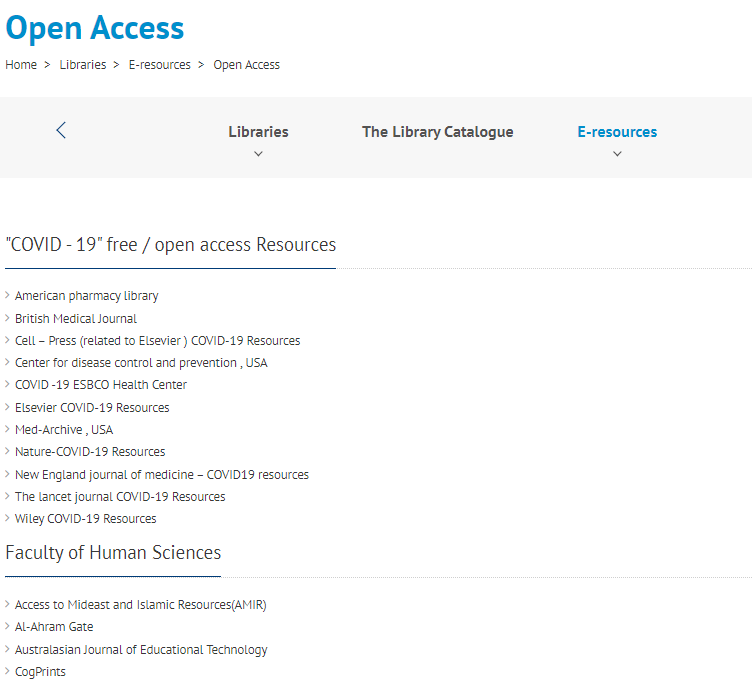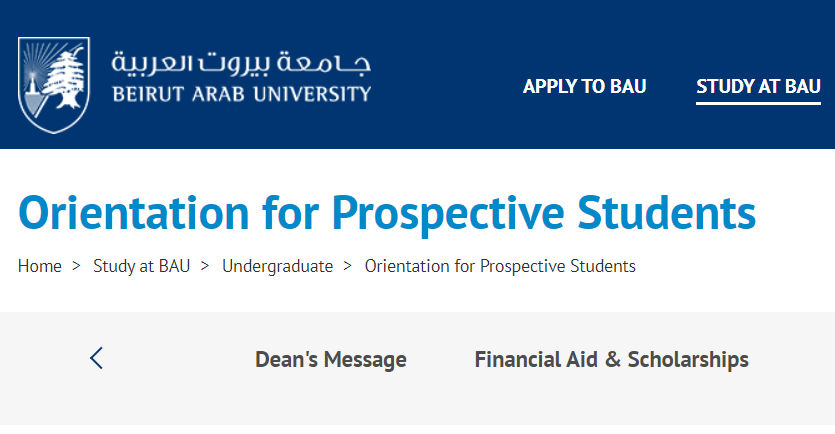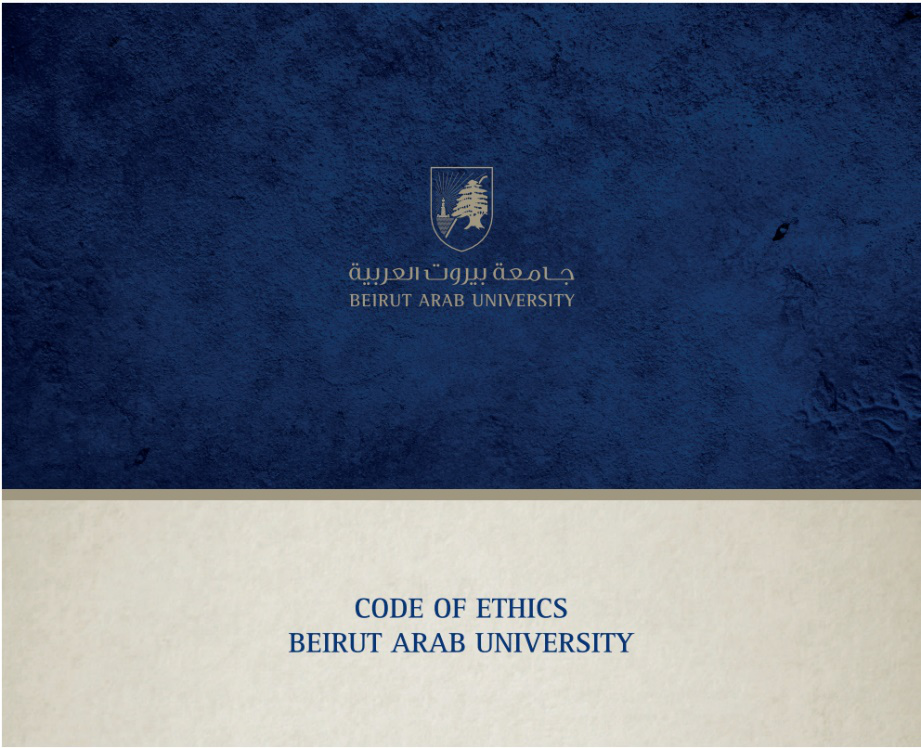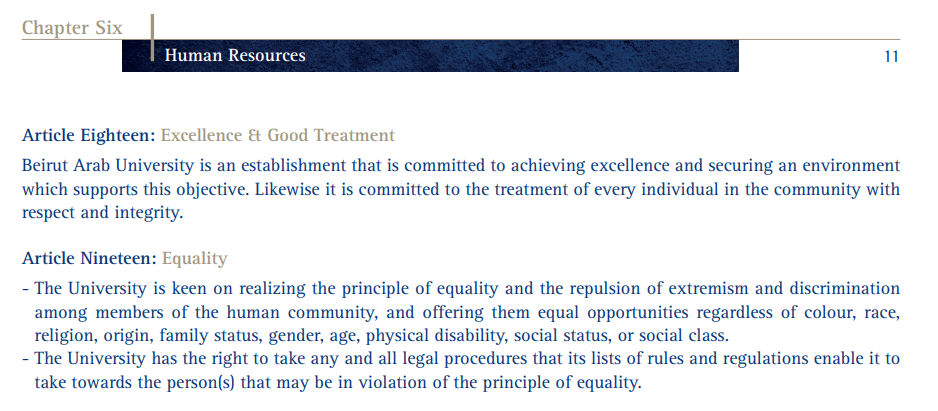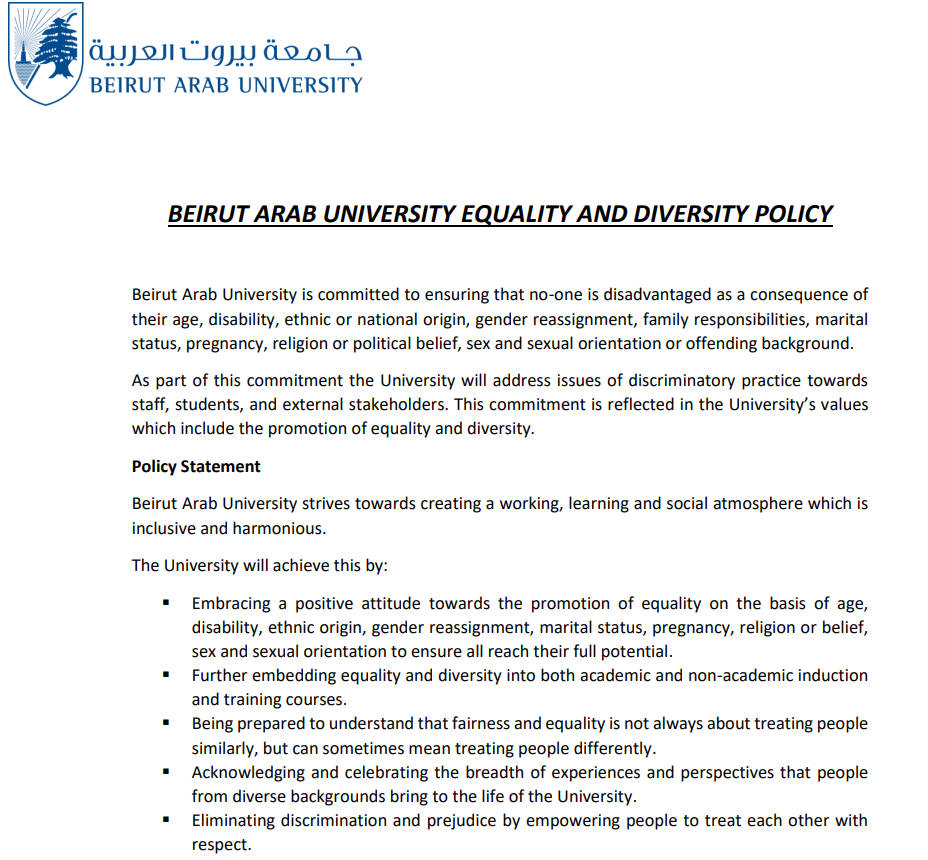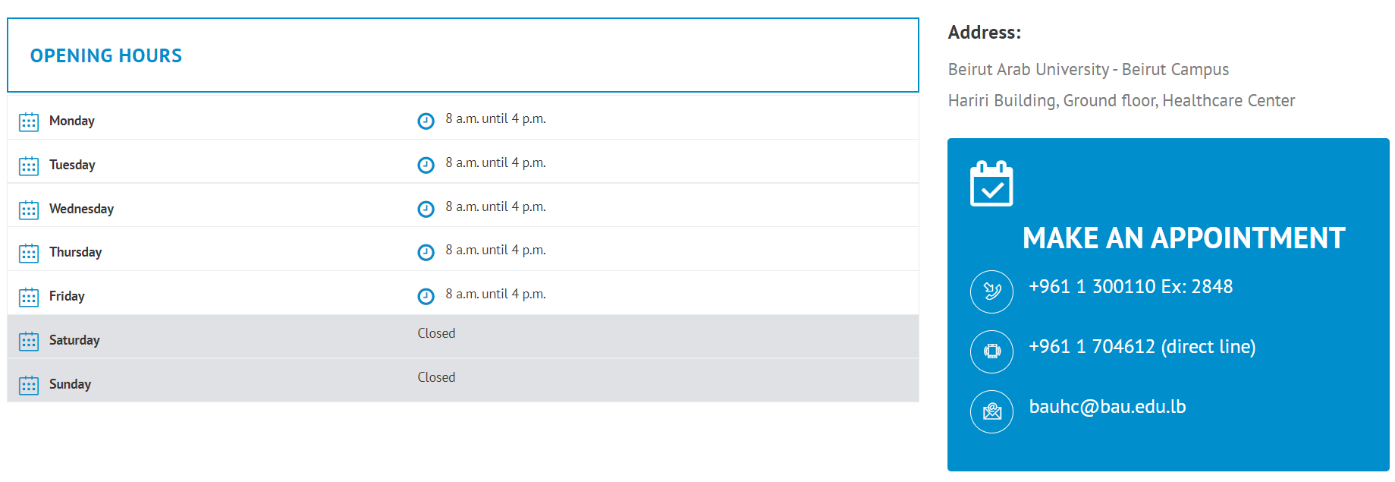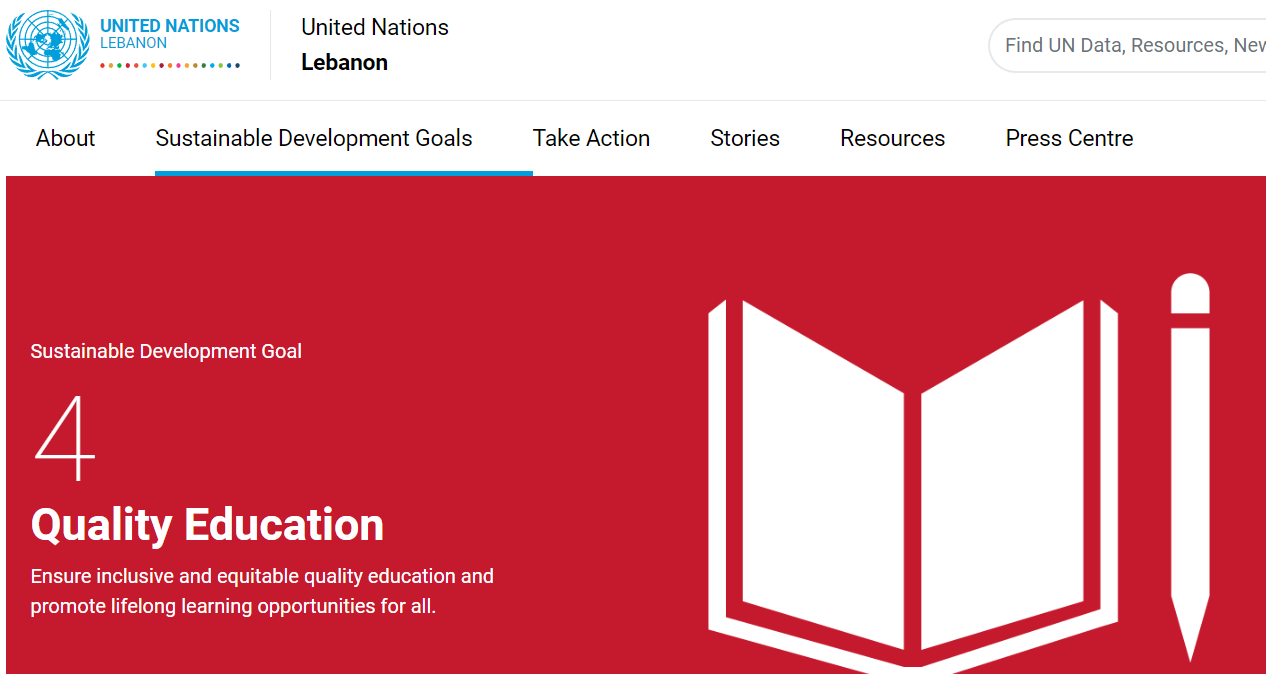SDG 4: QUALITY EDUCATION
Introduction
Sustainable Development Goal 4 (SDG 4 or Global Goal 4) refers to “Quality Education” and SDG4 aims to provide children and young people with quality and easy access to education plus other learning opportunities. One of its targets is to achieve universal literacy and numeracy.
Lebanon following the 2030 vision in SDG4 aims to achieve ensure that all learners acquire the knowledge and skills needed to promote sustainable development, including, among others, through education for sustainable development and sustainable lifestyles, human rights, gender equality, promotion of a culture of peace and non-violence, global citizenship and appreciation of cultural diversity and of culture’s contribution to sustainable development, ensure equal access for all women and men to affordable and quality technical, vocational and tertiary education, including University and substantially expand globally the number of scholarships available to developing countries, in particular least developed countries, small island developing States and African countries, for enrolment in higher education, including vocational training and information and communications technology, technical, engineering and scientific programmes, in developed countries and other developing countries
BAU promotes education among the community, leaving free resources so that people who do not study at the University have resources to prepare and educate themselves for free, BAU is a high-quality higher education institution that offers its students the best teachers and with the best personal and professional training. BAU carries out different educational activities in which staff, students and members of the local community participate. In this way BAU contributes to SDG4.
The United Nations Industrial Development Organization (UNIDO), with generous contribution of the Government of Japan collaborated with Beirut Arab University (BAU) and The Ministry of Industry in Lebanon to establish two new vocational training centers for Electricity and Solar energy at the BAU – Tripoli campus. The project aims to create economic opportunities and jobs in the construction sector for members of the host and refugee communities –especially vulnerable women and youth –since investment in skills development and innovation are crucial drivers of economic growth and development.
The project focuses on delivering training skills aligned with market needs and on serving the local communities in the North of Lebanon, especially vulnerable youth & women whose enrollment in the training is encouraged as part of this project. Beneficiaries will learn new skills and acquire on the latest technologies and practices in the market in order to increase their chances of finding a job and achieve inclusive education.
The Faculty of Dentistry at Beirut Arab University organized an activity Entitled "Improving the Oral Health of Preschoolers" this activity was prepared and performed by the fifth year students as a partial fulfillment of the “Community Service” course at Makassed khaled Bin Al Walid (KBWH) Kindergarten. The purpose of this activity is to involve the children in the Oral Health Awareness campaign and to allow them to discover the BAU Mobile Dental Clinic and get to know more about the facilities of the dental office.
The dentists presented a PowerPoint presentation related to healthy activities that affect their oral health like oral hygiene measures, oral habits and appropriate diet. Teachers as well had the opportunity to be exposed to effective treatments they can use in regards to their own oral health and their kids as well.
An Awareness Campaign was launched by the Faculty of Pharmacy organized by Dr. Suzanne Nasser and Dr. Khaled Abdel Galil for enriching the students’ learning experiences and developing their skills in community engagement. The Campaign targeted Students from Grades 9 to 12 in different public schools distributed in various regions since they are the vulnerable victims of the dangerous drugs abuse such as GHB (Gamma Hydroxybutyrate). Senior pharmacy students used PowerPoint Presentations and interactive discussions to enlighten and spread awareness between the students.
BAU in cooperation with MESMA2022 carried out a vibrant hybrid social media marketing event that merges social media experts, business people & senior university students with the aim of providing ‘higher’ level of content and dialogue-based around social media for business, along with rewarding individuals and companies who are making great strides in the realm of social media marketing, through the Middle East Social Media Award. The event was freely accessible and free for the entire local community.
Beirut Arab University (BAU) - Lebanon organized a webinar entitled "Modern Cybersecurity: Educational and Technical Perspectives". As part of the Erasmus project “Enhancing Teaching and Learning and Graduate Employability through University-Enterprise Cooperation (ELEGANT),” Beirut Arab University (BAU), Lebanon, organized an event on " Modern Cybersecurity: Educational and Technical Perspectives". The event featured webinars on modern cybersecurity from the educational and technical perspectives.
The event comprised three main tracks, namely, cybersecurity in higher education, cybersecurity in research, and cybersecurity in industry. The event featured 13 high-profile speakers (academicians and industrialists) from six different countries, namely, Croatia, Italy, Kuwait, Lebanon, Saudi Arabia, and the United Kingdom. The event hosted more than 200 attendees from Europe and the Middle East with 135 from Lebanese partner universities and people for local community.
The Faculty of Architecture- Design and Built Environment at Beirut Arab University organized a workshop at Karantina Park targeting the children through activating their participation in the creation of game boards. This workshop was organized in partnership with UNFPA- Lebanon, UNESCO- Beirut and UNODC- ROMENA.
Beirut Arab University in collaboration wit Erasmus performed the Erasmus+ Virtual Exchange National Information Day, this event will take place at the Beirut Campus and will host Erasmus + students. Additionally, people who wanted to be part of the event could register for free to obtain their place. The event targets participants from universities and high schools (international relations officers, teachers, faculty members, students, managers) and youth organisations (officers in charge of international relations and youth mobility, support staff for youth training).
During the event, experts, testimonials and alumni of Erasmus+ Virtual Exchange will present the project and its opportunities in details. Taking part in the event will provide the knowledge and tools for institutions and individuals to get involved in the Erasmus+ Virtual Exchange project activities during the next years.
BAU is preparing a Massive Open Online Course (MOOC) on “Healthy Urban Systems” with the International Science Council (ISC), International Society for Urban Health (ISUH), World Health Organization (WHO) and about 25 other professionals and practitioners, and organizations invited and supported by University of Lausanne (UNIL) using “Coursera” platform. Healthy Urban Systems MOOC is a first Massive Open Online Course on Urban Health Systems.
It is free of charge to access all course materials on a 24-hour online platform, for a duration of twelve weeks. This MOOC gives the opportunity to develop an extensive global network with other students, professionals and community from all around the world, to expand the knowledge about the concepts and tools of Healthy Urban Systems.
The Faculty of Health sciences at Beirut Arab University -Tripoli campus organized a workshop entitled “Let’s try Mediterranean Diet”. The event was attended by the Vice President for Tripoli branch Affairs Prof. Khaled Baghdady, Faculty Director Dr. Nisrine Bissar, Faculty Students, Staff and Local community. Projects of students from the Nutrition and Dietetics Department were displayed within the framework of their food service management course aimed towards educating the public on the advantages of the Mediterranean Diet.
The Faculty of Medicine hosted a seminar entitled “Personalized Medicine: Diabetes as a Model” presented by Dr. May Sanyoura, a post-doctoral scholar at Kovler Diabetes Center, University of Chicago. Dr. Sanyoura talked about the novel techniques in genetics and their implications in the medical field.
She also discussed her recent research work about monogenic diabetes stressing on the importance of genetic counselling for better diagnosis and treatment strategies. The event was free to access for people from the local community who wanted to participate.
The Faculty of Business Administration at Beirut Arab University has opened the Entrepreneurship Center “Al Mashghal – The Hub” funded by the Italian organization COSV. It aims to increase the job opportunities in the region among the youth through building their capabilities in the field of entrepreneurship with focusing on social entrepreneurship and innovation.
The center shall enhance the presence of an environment favorable for an alternative comprehensive socioeconomic development in the region by embracing the ideas of university students and the students of vocational training institutions and the local community. In addition, Al Mashghal shall work on developing, adopting and help in financing the projects so that they will develop as sustainable social projects that contribute in enhancing the business sector in the region.
The technically equipped “Al Mashghal – The Hub” launched a competition for the youth in the region to present applicable innovative ideas within the field of social entrepreneurship. Every team of the first 22 ideas shall receive 3000 euros in cash and shall be provided a two-month mentoring and training support by specialists to help them achieve their ideas so they will be real, sustainable and successful projects.
The Research Center for Environment & Development, BAU, Bekaa campus in coordination with the dean of student affairs and the director of admission department organized the Academic Guidance Exhibition for the Association of Universities in Lebanon. The forum was held at RCED with the participation of 1200 secondary students of public and private schools in central and western Bekaa region Students were provided with detailed information on the specialties available in the universities, admission requirements and extracurricular activities, in addition to financial aids & scholarships.
Participants from school principals, teachers and students stressed the importance of this exhibition for consuming their benefits, and a number of school administrators requested for a round table meeting with the president and dean of students in BAU to discuss the possibility of starting some majors in Bekaa branch specially medical school and engineering, hoping that the year 2019 will be the occasion.
The center organized a workshop on “Spreading awareness between youth to decrease violence in society” in collaboration with Fighters for Peace NGO. Beirut Campus, 29th of March 22 for the local community in Lebanon.
President of Beirut Arab University Professor Amr Galal El-Adawi signed a five-year Memorandum of Understanding with Kiron Open Higher Education for Refugees – Lebanon Branch represented by its Director Ms. Lea Batal.
The MoU aims to offer online- based educational courses for refugees and disadvantaged Lebanese. On the other hand, Kiron- in collaboration with BAU - will provide a platform for vulnerable population on which they can choose from already existing courses from variety of Higher Education Institutions. It provides the refugees and disadvantaged citizens with appropriate higher education and offer them opportunities for education and a better life in the future.
Open Day is an initiative of the university where the doors are opened to prospective public and private high school students as well as invitations to fathers and mothers who have children who want to access higher education, in this event orientation is provided to future university students in order to give them a guide in choosing careers, show what university life is like and get to know the university facilities so that they become familiar with university life.
With the purpose of teaching and guiding future students who are close to entering the university, BAU holds events where it broadcasts the graduations of students who finish academic programs, access is completely free and for any future student who wants to know about what university life is like, graduates of university programs tell their experiences in their academic life, experiences and learning, the future students who participated in this virtual meeting from different public and private schools had a space to ask questions about the university, the facilities and other doubts.
University/Strategy/Policy/Procedure
It is an initiative in which anyone outside the university can access information of all kinds, they can find topics from Architecture, Health & WellBeing, Society Culture & Human Behavior among others. BAU journals are official publications of Beirut Arab University, currently publishing six scholarly journals that cover a wide range of disciplines, from the humanities and the social sciences to the life and physical sciences. In addition to working with departments and faculties of the university, BAU journals serves a world-wide community of scholars, researchers, and practitioners through the publication of peer-reviewed academic and professional journals in print and electronic form.
The journals endeavor to extend the influence of the University and the academic community to influence people's lives throughout the world. Supported by Elsevier’s digital commons platform, we are expanding our reach to connect with intellectually engaged audiences across a variety of platforms and throughout academia and beyond, we look to lead the way into the future of scholarly publishing.
BAU encourages the progress of the individual at the academic and personal level, thinking about this I develop an Online Database in which there are tutorials about all possible study topics for anyone outside the university. BAU wants the Lebanese community to strengthen its skills, this service is free of charged.
Open access It is an initiative in which BAU gives free access to its libraries to the general public free of charged, the section was developed with the aim that anyone who does not belong to the university has the opportunity to read articles, books and research that allow the general public to inform themselves, BAU develops these strategies to exterminate the educational inequality and to achieve inclusive education.
The Admissions Office at BAU is responsible for recruiting undergraduate students. Our staff visit the public and private schools all over Lebanese regions and meet the students to provide them with information regarding the admissions process, majors and student life at BAU. We also participate in regional fairs and international exhibitions in addition to organizing “Open Doors” event at our 3 campuses which is a great opportunity for students to tour the campus, meet academic staff and learn more about the student services.
Incoming school visits
During the year, we host school visits to the University from all Lebanese regions, offering a flexible and tailored visit to campus for your students, send an email to admission@bau.edu.lb to request a visit to campus. If possible, please let us know two weeks in advance.
Open doors
Every year, we offer opportunities for schools to attend Open doors event at our 3 campuses (Beirut, Debbieh and Tripoli).
Virtual Orientation
In response to the ongoing impact of the COVID-19 pandemic, BAU has decided to hold virtual online sessions to recruit new students.
Beirut Arab University rejects any type of discrimination, whether it be of ethnicity, religion, disability or gender, for this reason it has a code of ethics and an Equality and Diversity Policy that aims to ensure students and staff members that they are not It will present no type of discrimination and if it is presented, the University will take immediate action for the mental and physical well-being of the affected person. BAU supports gender diversity and inclusion.
BAU to ensure equality and fairness in academic work processes for students and staff members of the University and has a code of ethics in which the values of the University are highlighted and the rejection of any type of discrimination that may arise.
BAU Code of Ethics – University Values
The University’s basic values are academic distinction, honesty and integrity in teaching and scientific research, autonomy, freedom in conducting research, respect for individuality and safety, social justice, equality amongst individuals, scientific integrity, good conduct, setting good role-models, and honorable representation of the University. It is the responsibility of the persons active within the context of the University to uphold these values through:
Committing to integrity of behavior which is translatable into professional excellence and ethical behavior.
Adhering to responsible and decisive attitudes in their actions.
Adhering to the practice of tolerance in their human relations.
Openness towards new ideas that intrinsically bear elevated objectives.
Enhancing benevolent and parental relations between staff members and the students.
BAU Code of Ethics – Excellence & Good Treatment
Beirut Arab University is an establishment that is committed to achieving excellence and securing an environment which supports this objective. Likewise it is committed to the treatment of every individual in the community with respect and integrity.
BAU Code of Ethics – Equality
The University is keen on realizing the principle of equality and the repulsion of extremism and discrimination among members of the human community, and offering them equal opportunities regardless of colour, race, religion, origin, family status, gender, age, physical disability, social status, or social class.
The University has the right to take any and all legal procedures that its lists of rules and regulations enable it to take towards the person(s) that may be in violation of the principle of equality.
Beirut Arab University is committed to ensuring that no-one is disadvantaged as a consequence of their age, disability, ethnic or national origin, gender reassignment, family responsibilities, marital status, pregnancy, religion or political belief, sex and sexual orientation or offending background.
As part of this commitment the University will address issues of discriminatory practice towards staff, students, and external stakeholders. This commitment is reflected in the University’s values which include the promotion of equality and diversity.
Policy Statement
Beirut Arab University strives towards creating a working, learning and social atmosphere which is inclusive and harmonious.
The University will achieve this by:
Embracing a positive attitude towards the promotion of equality on the basis of age, disability, ethnic origin, gender reassignment, marital status, pregnancy, religion or belief, sex and sexual orientation to ensure all reach their full potential.
Further embedding equality and diversity into both academic and non-academic induction and training courses.
Being prepared to understand that fairness and equality is not always about treating people similarly, but can sometimes mean treating people differently.
Acknowledging and celebrating the breadth of experiences and perspectives that people from diverse backgrounds bring to the life of the University.
Eliminating discrimination and prejudice by empowering people to treat each other with respect.
The University’s Approach
The University believes that the most effective way to promote equality and eradicate discrimination is to mainstream the consideration of equality across its functions. In this respect, all employees, students, and visitors to the University have an individual duty to ensure that equality and diversity is actively promoted.
Ultimate responsibility for overseeing this approach rests with the Board of Governors which delegates responsibility to the Principal and Vice Chancellor who, in turn is assisted by the Executive. To ensure there is effective leadership within the University, one of the Vice-Principal and Pro Vice-Chancellors assumes the role of having overall strategic responsibility for the promotion of equality and for the mainstreaming of equality and diversity and is supported by the Equality and Diversity Sub-Committee (EDSC).
Implementation
Mainstreaming equality and diversity is the responsibility of the EDSC, comprised of membership from a wide range of the university’s administrative functions and staff and students to ensure it represents staff and student experiences at the University.
The mainstreaming of equality and diversity includes ensuring that staff are aware of their responsibilities, the University does this through mandatory new staff training and periodic refresher training, both of which are embedded in the University’s values and strategy.
The University is committed to creating and promoting a working and learning environment where everybody is treated with respect.
Responsibilities
Ensure that the University has an effective Equality and Diversity Policy.
Ensure that the University’s equality and diversity policies and action plans are regularly reviewed and updated as necessary, to ensure compliance with all statutory obligations.
Make available the necessary resources for the effective operation of all University activities.
Ensure that responsibility for equality and diversity is properly assigned and promote active acceptance of this responsibility throughout the University.
Work to secure a culture of active engagement with equality and diversity issues.
In the event of any type of discrimination against a staff member or student of the university, BAU will make the Psycho-Social Unit available to the affected person, which will take care of the mental health of the student or staff member to provide the necessary guidance and support to overcome the situation.
Beirut Arab University Healthcare Center (BAUHC) - Psycho-Social Unit
In the light of the accelerating rhythm of modern life and the increasing needs of university students for support, both psychologically and socially, to be able to better face the stressors and difficulties of daily life, the Faculty of Human Sciences (Psychology Department) proposes the establishment of the Psycho-social Unit at BAU.
This unit becomes an inevitable requirement for the welfare of BAU students and staff. Such a step will be a pioneering contribution by BAU among Lebanese universities. The Unit offers counseling services and interventions, including but not limited to psychological, social and educational services for the students. These services are rendered in accordance with world-wide counseling, therapeutic psychological and ethical standards which regulate psycho-social services. The guiding principle for the Unit is nondiscrimination and equality.
LEBANON places education at the cornerstone of Vision 2021. The Ministry of Education (MOE) and its strategic partners have laid out a strong strategy to harness the national human capital’s full potential by maximizing participation in high-quality education, encouraging entrepreneurship, and nurturing public and private sector leaders. The 2016 merger between the Ministry of Education and Higher Education has enabled LEBANON to focus on equity and quality from kindergarten to higher education to fill the gap between academic requirements and labour market demands. MOE is accelerating progress towards the SDGs by infusing Information & Communication Technologies (ICT) (such as Artificial Intelligence) in the education system through a smart learning program and a specialized data centre.
Policies and Initiatives
The Early Childhood Policy (2018) targets children from birth until the age of 8 and calls for the establishment of a national framework with a comprehensive and integrated approach for the care and learning of children.
The Inclusive Education Policy Framework (2018) defines an Emirati school model focused on providing quality education from birth through its five tracks (Specialization track, General/Academic track, Professional track, Advanced track and Professional Advanced track).
